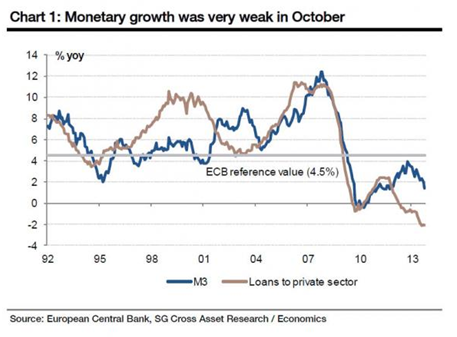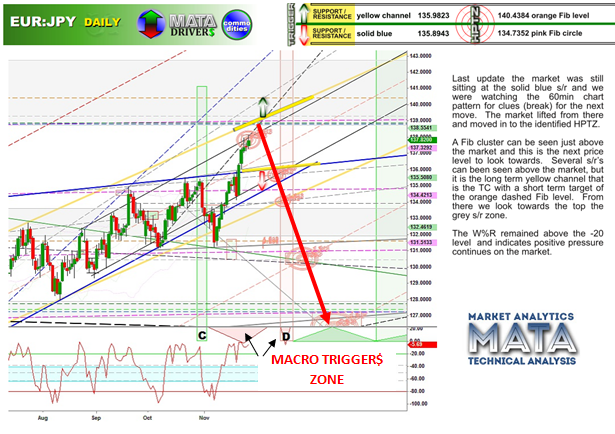MELT-UP MONITOR

Euro Pressure Going Critical
Released 11/28/13
The Draghi Dungeon is a worse predicament than the Bernanke Box!
How could this possibly be a ‘Dungeon’ when the STOXX is going parabolic, the Current Account is surging and the Euro is strong? The answer lies in how this could all occur during six quarters of recession, historic unemployment and slowing exports? Because this is a Euro Currency hole from which Mario Draghi cannot easily escape.
WHY WOULD DRAGHI LOWER RATES WHEN MARKETS LOOK LIKE THIS?
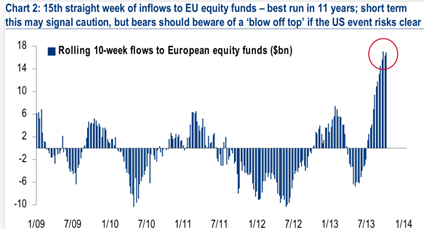
… AND CUURENT ACCOUNT FLOWS LOOK LIKE THIS?
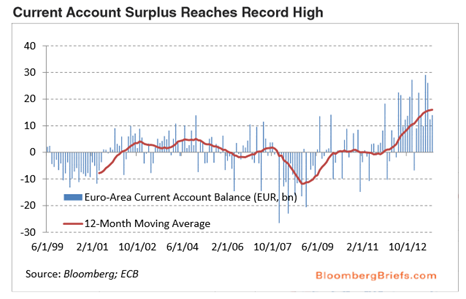
... Because
SLOWING GROWTH & A STRONG EURO ARE MAKING BANK LOANS RAPIDLY UNPAYABLE
We see the unresolved & ‘papered’ over banking crisis in the EU raising its head once again. This time it will be with more vengeance!
The catalyst for the crisis is now stemming from the CEE (Central & Eastern Europe). Critically, the forgotten money borrowed by Central and Eastern Europe in Euro’s during the EU ‘good times’ is quickly becoming unpayable.
A recent SNB report warned:
Before the onset of the financial crisis, foreign currency loans to the non-banking sector in Europe became remarkably prevalent. In particular, households and non-financial firms were taking bank loans denominated in lower-yielding foreign currencies and investing in high-yielding domestic currencies (e.g., in the form of home mortgages or business investments), even though these agents did not necessarily have a steady income in the foreign currency concerned. Therefore these retail foreign currency loans were usually dubbed 'small men’s carry trade'. Since the crisis, the outstanding volumes of foreign currency loans to the non-banking sector have been slowly declining in some countries due to macro-prudential measures, deleveraging of banks, and the continued slowdown of European economies. Nevertheless a substantial fraction of households and firms still have foreign currency bank loans.
The chart below shows that as of the second quarter of 2013 the majority of the outstanding loans to the non-banking sector in many non-Eurozone countries continue to be denominated in a foreign currency. For example, in Hungary, Romania, Bulgaria, Croatia, Serbia, and Latvia, between 60% and 88% of the outstanding loans to the non-banking sector are denominated in a foreign currency.
Share of foreign currency loans as a percentage of total loans to the non-banking sector in Europe (2013:Q2)
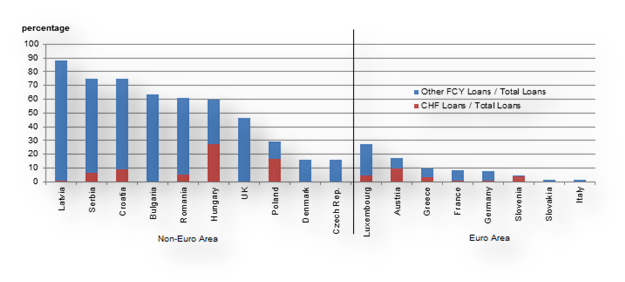
Source: CHF Lending Monitor
Notes: CHF, Swiss francs; FCY, foreign currency.
While foreign currency loans offer some advantages to borrowers – such as lower interest rates and longer maturities compared to domestic currency loans – they also carry a significant exchange rate risk. A sharp depreciation of the domestic currency can prevent unhedged borrowers from being able to service their foreign currency loans. As a result, these loans are now creating a substantial systemic risk to the European banking sector. Banks could fail jointly as a result of their exposure to unhedged households and non-financial firms which default on their loans when the domestic currency depreciates sharply.
Systemic risk measures show that foreign currency loans to the non-banking sector create substantial risks to the banking sector from a 'common market shock 'perspective. High persistence and low volatility of the systemic risk measures indicate that short-term policies would be unable to swiftly reduce this risk.
A strong Euro, falling CEE growth and investment and rising Current Account deficits are taking the situation ‘critical’.
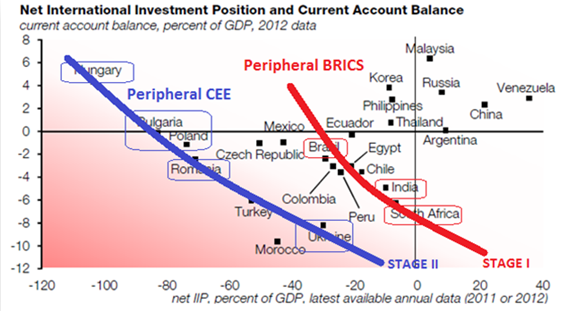
The banking situation in the CEE (Central and Eastern Europe) is deteriorating rapidly as can be seen by Poland confiscating Pensions, the Czech Republic wanting the ability to debase their currency by deferring Euro usage, Slovenia’s ‘Cyprus like’ banking problems etc. From the Balkans to the Baltic States the problems are increasing and Draghi is acutely aware of what this means to EU banks.
DRAGHI DEBASEMENT HIGH PROBABILITY OUTCOME
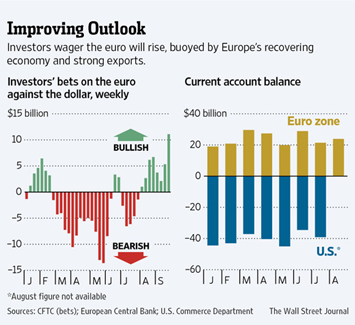 The ECB must drive the Euro down soon or the Euro Banking crisis, which was never resolved and only ‘obscured’, will take the banks into an even worse crisis. The ECB must drive the Euro down soon or the Euro Banking crisis, which was never resolved and only ‘obscured’, will take the banks into an even worse crisis.
CARRY TRADE CONSOLIDATION DRIVER: Euro Likely to Weaken Temporarily Relative to Yen
The Japanese Carry Trade (aka “ABE-nomics) is consistently shown on a daily basis to be a major controller of liquidity flows. The Japanese Carry Trade Liquidity Pump of $65B/Month is being leveraged up significantly.
This is about to temporarily correct despite the Yen weakening as presently expected by Carry trders.
- JPY Must Continue to Weaken Expected
- EUR Must not Weaken Expected The Surprise Factor
DRAGHI DUNGEON
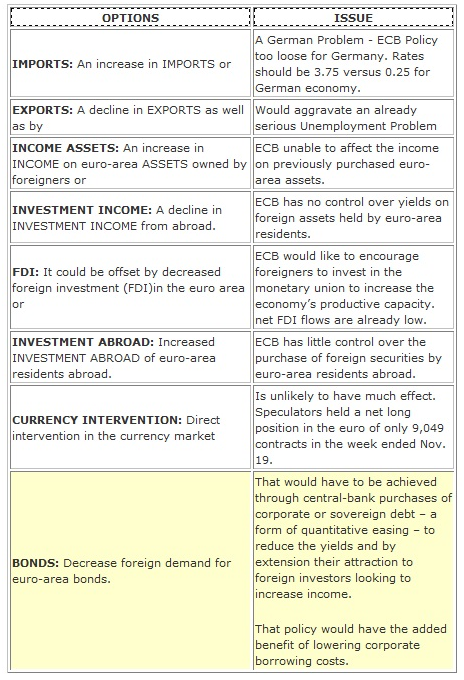
An ECB version of QE has now urgently been placed on the table.
DRAGHI IS RUNNING OUT OF TIME
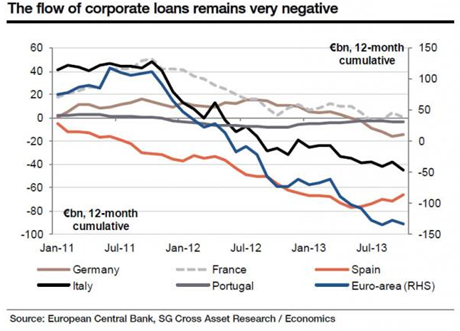
REMEMBER: THE EURJPY CARRY IS DRIVING THE US STOCK MARKET MELTUP
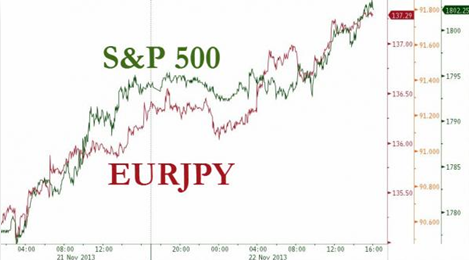
ANALYTIC EXPECTATIONS – A Message in the Technicals
Watch our July LONGWave Video
CONFUSING CROSS CURRENTS
30 Minutes, 44 Slides
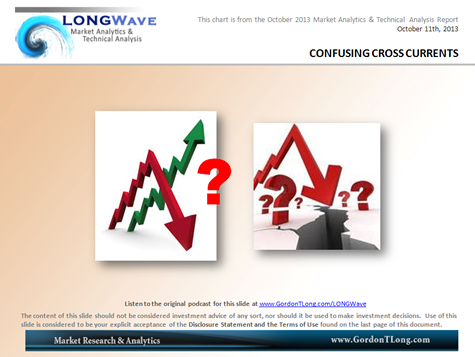
LEARN HOW TO TRADE A CRACKUP BOOM AT GORDONTLONG.COM
Request your FREE TWO MONTH TRIAL subscription of the Market and Technical Analysis (MATA) Report.
No Obligations. No Credit Card.
Gordon T Long
Publisher & Editor
[email protected]
Gordon T Long is not a registered advisor and does not give investment advice. His comments are an expression of opinion only and should not be construed in any manner whatsoever as recommendations to buy or sell a stock, option, future, bond, commodity or any other financial instrument at any time. While he believes his statements to be true, they always depend on the reliability of his own credible sources. Of course, he recommends that you consult with a qualified investment advisor, one licensed by appropriate regulatory agencies in your legal jurisdiction, before making any investment decisions, and barring that you are encouraged to confirm the facts on your own before making important investment commitments.
© Copyright 2013 Gordon T Long. The information herein was obtained from sources which Mr. Long believes reliable, but he does not guarantee its accuracy. None of the information, advertisements, website links, or any opinions expressed constitutes a solicitation of the purchase or sale of any securities or commodities. Please note that Mr. Long may already have invested or may from time to time invest in securities that are recommended or otherwise covered on this website. Mr. Long does not intend to disclose the extent of any current holdings or future transactions with respect to any particular security. You should consider this possibility before investing in any security based upon statements and information contained in any report, post, comment or suggestions you receive from him.
|






























 The ECB must drive the Euro down soon or the Euro Banking crisis, which was never resolved and only ‘obscured’, will take the banks into an even worse crisis.
The ECB must drive the Euro down soon or the Euro Banking crisis, which was never resolved and only ‘obscured’, will take the banks into an even worse crisis.

